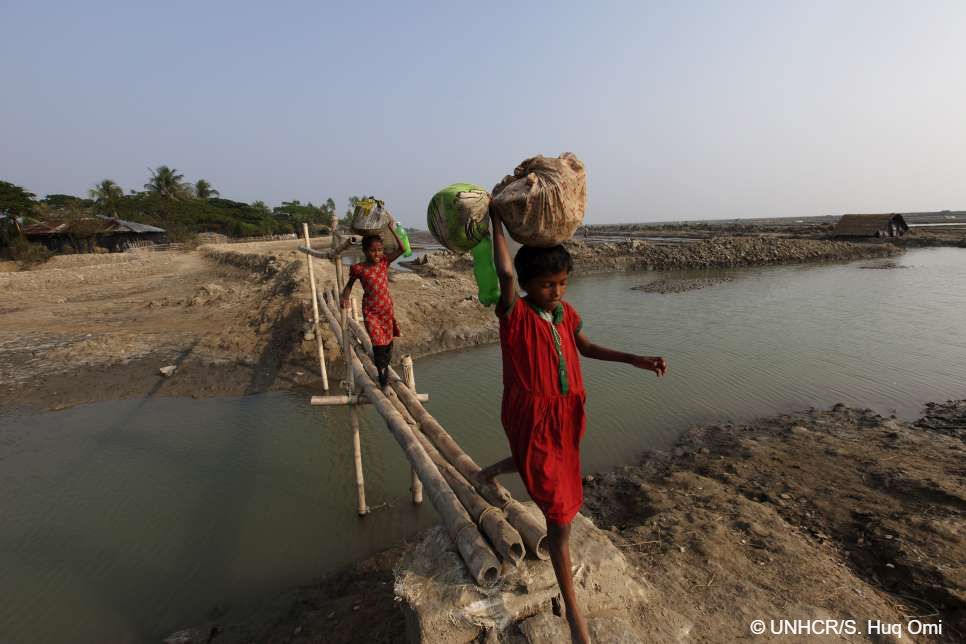|
 In 2018, Spain acceded to the Global Compact on Migration and the United Nations Global Compact on Refugees, both of which recognise environmental factors as the root cause of forced displacement, and propose a common framework for dealing with this type of situation, based on the protection and respect for human rights. It was only a matter of time before the government was called upon to take effective action on this issue. On 3 October of this year, the commission of the Spanish Congress of Deputies approved the "Propuesta No de Ley" presented by the party "Unidas Podemos" in order to recognise the "international protection of climate refugees". All the parliamentary groups voted in favour, except Vox. According to the Rules of Procedure of the Spanish Congress of Deputies, the "Propuesta No de Ley" (non-legislative proposals) are proposals that can be presented by parliamentary groups as a consequence of a previous appearance, either by the government or by other bodies. According to the Spanish Constitutional Court, they do not have a legislative nature or purpose, but rather promote the possibility of deliberation and the adoption of a position by the Congress of Deputies on a specific issue and urge the adoption of instructions, guidelines or mandates, without binding legal effects (Constitutional Court Judgement 40/2003). This initiative proposes the granting of asylum for climate and socio-environmental reasons, as well as the promotion of international agreements that allow for "safe and legal migration" for these reasons. This initiative is based on the petitions of the Spanish Commission for Refugee Aid (CEAR) and Greenpeace, which already demanded in October 2021 the recognition and protection of climate refugee status, granting authorisation to stay for humanitarian reasons. With this proposal, the government is urged to support local entities and establish frameworks for collaboration between cities that offer resources to take in refugees for environmental reasons. It is also requested that the consequences of climate change and the protection of refugees be promoted and made more visible through joint campaigns with regional and municipal administrations. The text of the proposal states that "the countries of the global North have contributed most to aggravating the climate crisis and could compensate in some way by welcoming these people who suffer its consequences". And that "Climate migrants are victims of governments and human action, and therefore have rights and deserve protection". Only one amendment has been proposed, which is as follows: where it says: "To recognise the right to international protection for climate refugees, granting them shelter and protection", it is replaced by what the approved text says, which is: "To recognise the right to international protection for climate refugees refugees, within the framework of the European Union, by granting them reception and protection". Despite the lack of legal binding force, this initiative has a moral force that already points to the need to change the position of states in relation to climate migration. This attempt is not new, as in 2019, in the XIII Legislature, a question had already been put to the Government with a written answer on the measures being implemented for the protection of environmental refugees (184/000388). The government's response was to note the concern about this reality and aimed at joining efforts in the need to share knowledge and advance research, as it is understood that this is a complex issue, in which it is not always easy to establish clear cause-effect relationships, and to which there do not seem to be univocal answers, but rather a combination of humanitarian, political and developmental responses. While reiterating the impossibility of using the concept of "environmental or climatic refuges", it is established that the government, to the extent of its possibilities, will contribute to the mechanisms of international cooperation and solidarity aimed at preventing and alleviating this situation of forced displacement, in order to provide the people affected by it with dignified alternatives that respect human rights. In this response, the Spanish government diverts attention to the cause-effect binomial, yet the reality of climate migration is a human consequence of the effects of climate change and as such must be protected as a humanitarian issue. It is a question of respecting and guaranteeing human rights that all states must comply with, especially those, such as Spain, that are part of the cause. Despite these parliamentary initiatives, it would be time to promote a popular legislative initiative to force the recognition of a humanitarian asylum to protect people displaced by the impacts of climate change.
0 Comments
Leave a Reply. |
Susana BorràsMarie Skłodowska-Curie Fellow (H2020-MSCA-IF-2020)nº101031252 Archives
March 2023
|
Proudly powered by Weebly




 RSS Feed
RSS Feed